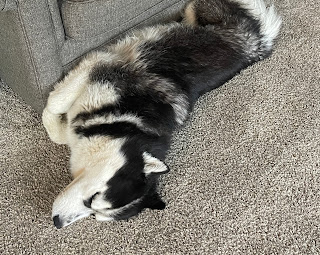This Week's Topic: Emotion -- Do I have to feel the exact emotion I'm writing?
Have to? Nah. Probably shouldn't, to be frank. It's hell on my health. Murderous rage? I try not to wind myself up that tightly since it's bad for the ol' ticker...and inanimate bystanders (I got a bit of Berserker in me and a large supply of smashables). Stark terror? I carry my stress in my digestive system, and I don't like wearing adult diapers. So turned on a lamp post is lookin' good? I gotta do a hard pass on the arrest warrant in this era of diminishing "reasonable expectations of privacy."
Now, that's not to say I don't mentally get in the general vicinity of the feeeeels of what my character(s) is going through. The gist of joy and distress. The recollection of the highs and lows. I do that quite often. There are many scenes where my emotional investment is critical to wring the emo of the moment, but there's a line between investment and mimicry. Empathy doesn't require us to endure the physical or mental tumult; it's empathy that is the key to showing the reader my character's actions and reactions, rather than flatly telling the reader what to feel. That's how we--authors--leave enough room for reader interpretation.
Admittedly, there are scenes when my head forgets to consult my heart, which results in my mss coming back from the editor with lots of "insert emo here" comments. That's when I stare at the scene and ask myself, "What would my protag be feeling here?" That's when empathy knocks on the ol' memory tomb and checks to see if we have anything in the emotionally comparable neighborhood.
I've never gotten in a street fight with dragons, but I did get in a catfight with my sister once. I lost fistfuls of hair and she wound up with a dislocated knee. Then the cops showed up.
General emo vicinity, folks. General emo vicinity.



.jpg)







